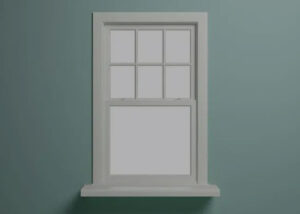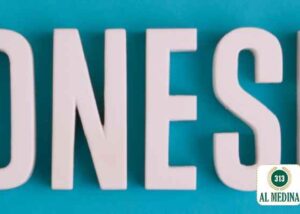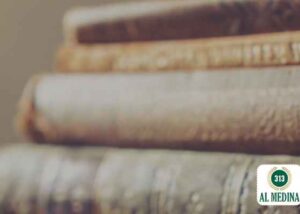Do you face the Qiblah when reading Quran? Some people insist that you have to.
Quran
Hadith
Islamic Text
بِسْمِ اللَّهِ الرَّحْمَنِ الرَّحِيمِ
In the Name of Allah Most Merciful Most Kind
Short Answer
No, you do not have to face Qiblah when reading Quran. However, it is good to do so. This is because the Prophet ﷺ generally encouraged facing the Qiblah.
Hadith
عَنْ أَبِي هُرَيْرَةَ قَالَ: قَالَ رَسُولُ اللَّهِ صَلَّى اللهُ عَلَيْهِ وَسَلَّمَ: إِنَّ لِكُلِّ شَيْءٍ سَيِّدًا، وَإِنَّ سَيِّدَ الْمَجَالِسِ قُبَالَةَ الْقِبْلَةِ
Abu Hurairah narrated that The Messenger of Allah ﷺ said: Everything has a Sayid, and the Sayid of sitting is facing the Qiblah. (Tabarani al-Mu’jam al-Awsat, 2354).
In the Hadith narration above, we find the blessed Prophet ﷺ praising sitting facing the Qiblah (direction of the Ka’bah). This is generic and not specific to when one is reciting the Holy Quran. However, it does include it. Therefore, it is praiseworthy to face the Qiblah when reading Quran.
The Hadith above is Hasan (strong) as mentioned by major Hadith scholars. When quoting a Hadith in a religious discussion it is very important to establish authenticity. Unfortunately, many Muslims quote Hadith narrations without an understanding of how authentic it is. The companions, for example, were extremely cautious about this matter.
Authenticity
عَنْ أَبِي هُرَيْرَةَ قَالَ: قَالَ رَسُولُ اللَّهِ – صَلَّى اللَّهُ عَلَيْهِ وَسَلَّمَ -: إِنَّ لِكُلِّ شَيْءٍ سَيِّدًا، وَإِنَّ سَيِّدَ الْمَجَالِسِ قُبَالَةَ الْقِبْلَةِ. رَوَاهُ الطَّبَرَانِيُّ فِي الْأَوْسَطِ وَإِسْنَادُهُ حَسَنٌ. (مجمع الزوائد ومنبع الفوائد)
(Imam) al-Tabarani narrated it in al-Awsat. It has a Hasan chain. (Imam Noorud-deen al-Haythami, Majma al-Zawaid).
وللطبراني في الأوسط من حديث أبي هريرة رفعه: إن لكل شيء سيدا، وإن سيد المجالس قبالة القبلة، وسنده حسن. (المقاصد الحسنة في بيان كثير من الأحاديث المشتهرة على الألسنة)
And al-Tabarani has it in al-Awsat from the Hadith of Abi Hurairah. He raised it (to the Prophet ﷺ): Everything has a Sayid, and the Sayid of sitting is facing the Qiblah. The chain is Hasan (strong). (Imam Shams al-Deen al-Sakhaawi, Maqaasid al-Hasanah).
أخرجه الطَّبَرَانِيّ بِإِسْنَاد حسن عَن أبي هُرَيْرَة رَضِي الله عَنهُ قَالَ قَالَ رَسُول الله صلى الله عَلَيْهِ وَسلم إِن لكل شَيْء سيدا وَإِن سيد الْمجَالِس قبالة الْقبْلَة. (تحفة الذاكرين)
(Imam) al-Tabarani narrated it with a Hasan chain from Abu Hurairah (May Allah Most High be pleased with him). He narrated that The Messenger of Allah ﷺ said: Everything has a Sayid, and the Sayid of sitting is facing the Qiblah. (Imam al-Showkani, Tuhfatu al-Dhakireen).
As seen in the Nusoos (texts) above, the Hadith narration being used to justify the recommendation of facing Qiblah when reading Quran is Hasan. A Hasan Hadith is a strong Hadith. It is almost the same as a Sahih Hadith. Since Muslims regularly quote Hadith, it is important to study the basics of the science of Hadith.
Classical Hanafi Scholars
Due to the clear evidence found in Hadith, leading Hanafi scholars stated that it is recommended to face the Qiblah when reading Quran. It must be noted that this is a recommendation not an obligation. Therefore, there is no blame upon a person who does not face the Qiblah when reading Quran.
[فُرُوعٌ فِي الْقِرَاءَةِ خَارِجَ الصَّلَاةِ] يُسْتَحَبُّ لِمُرِيدِهَا أَنْ يَلْبَسَ أَحْسَنَ ثِيَابِهِ وَيَتَعَمَّمَ وَيَسْتَقْبِلَ، وَكَذَا الْعَالِمُ لِلْعِلْمِ تَعْظِيمًا لَهُ، وَلَوْ قَرَأَ مُضْطَجِعًا فَلَا بَأْسَ. (فتح القدير)
Rulings regarding recitation outside of Salah (prayer): It is recommended for the one intending it (recitation) to wear his best clothes, wear an Imamah (turban) and face the Qiblah. The same applies to the scholar regarding knowledge, out of veneration for it. There is no harm in him reciting whilst lying down. (Imam Kamal al-Deen Ibn Humaam, Fath al-Qadeer).
من أراد أن يقرأ القرآن ينبغي أن يكون على أحسن أحواله، يلبس أحسن ثيابه ويتعمم، ويستقبل القبلة، تعظيماً للقرآن، وكذا العالم يجب أن يعظم العلم. (المحيط البرهاني في الفقه النعماني)
Whoever intends to recite the Qur’an should be in the best condition, wearing his best clothes, an Imamah (turban), and facing the Qiblah. This is in veneration of the Quran. Likewise a scholar must venerate knowledge. (al-Muheet al-Burhaani, Imam Burhan al-Deen al-Bukhari).
رَجُلٌ أَرَادَ أَنْ يَقْرَأَ الْقُرْآنَ فَيَنْبَغِي أَنْ يَكُونَ عَلَى أَحْسَنِ أَحْوَالِهِ يَلْبَسُ صَالِحَ ثِيَابِهِ وَيَتَعَمَّمُ وَيَسْتَقْبِلُ الْقِبْلَةَ. (الفتاوى الهندية)
A man intends to recite the Qur’an. He should be in the best condition, wearing nice clothes, an Imamah (turban), and facing the Qiblah. (al-Fatawaa al-Hindiyah).
Conclusion
Form the Nusoos above, it is abundantly clear that facing the Qiblah when reading Quran is recommended. Thus, it must be treated as a recommendation and not an obligation. Sometimes, Muslims become so strict upon recommendations that they deprive themselves of religious or spiritual benefit.
If a person refrains from reciting the Quran when they are unable to face the Qiblah, then ultimately they have lost out. This is because such an individual has recited less Quran than he would have done so. This is a spiritual and religious loss.
Therefore, one must treat facing the Qiblah when reciting the Quran as a recommendation not an obligation. If they are able to face the Qiblah, then they should do so. Otherwise, one can recite in whichever direction is possible. As such, this allows an individual to give preference to the abundant recital over the direction.
And Allah Most High Knows Best.
–Answered by Shaykh Noorud-deen Rashid (14.04.24)






